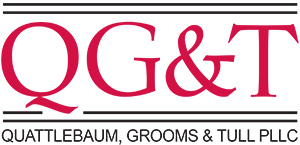Scholarships for Retail Development
March 27, 2017
by J. Cliff McKinney II |
Most of us love it when the Razorbacks win. It is thrilling to watch a player like Darren McFadden score the decisive touchdown.
A college football team like the Razorbacks depends on talented athletes, and colleges use scholarships to attract these athletes. Consider McFadden for a moment. He grew up loving the Razorbacks, but does anyone believe he would have been a Razorback without a scholarship? Imagine the coach saying, “We know you could get a great scholarship in Texas or Oklahoma, but we want you to pay your own way.”
This sounds ridiculous, but this is what Arkansas is doing when it comes to recruiting retail development to our state.
Arkansas’ economic development efforts are geared to attract manufacturing. According to the National Retail Federation, though, retail trade employs 252,283 Arkansans, while manufacturing employs 159,792. Retail is the largest employment industry in the state; manufacturing is a distant third. Retail development also improves quality of life.
Other states recognize the valuable economic contribution of retail. These states have incentive programs – retail scholarships – that Arkansas tries to compete against without an effective answer. So what are these scholarships in other states? Here are a few examples.
Tax increment financing is the most common retail incentive in most states. TIF works by capturing a portion of the property tax revenue generated by a new development and funding public infrastructure projects, such as roads and sewers, with the captured revenue. TIF is not a tax break for retailers because the same tax is paid with or without the TIF, but TIF upgrades public infrastructure.
Every surrounding state routinely uses TIF, often as a starting point in an incentive package. Arkansas has a TIF program on the books, but the Arkansas Supreme Court ruled most of it unconstitutional in 2007. Nothing was done to fix it.
In addition to TIF, Texas has a program called Chapter 380 incentives. These can include grants of money, loans, sales or leases of public property, and property tax abatements to incentivize retail development.
For example, Carrolton has a Chapter 380 incentive for retailers granting up to $1,000,000 for rehabbing older buildings. El Paso rebates up to 100 percent of all city property taxes and sales taxes for certain retail projects. Many cities in Texas use Chapter 380 to rebate sales tax to retailers who make public improvements, widen streets or upgrade utilities.
Oklahoma allows individual cities to develop retail incentive programs. Oklahoma City, for instance, offers public infrastructure improvements, expedited permitting and other incentives depending on the size of the retail project. Broken Arrow offers similar incentives, including sales tax rebates for retail projects. Tulsa, Bartlesville and other cities also have retail development incentive programs.
Arkansas, meanwhile, has nothing meaningful to offer.
We must position ourselves to be more competitive, especially considering Arkansas’ average weekly wage is the lowest in the nation and our per capita gross domestic product is lower than all surrounding states except Mississippi.
Retailers look for the best return on investment. Arkansas’ comparatively weak economy already makes us a challenge for many developers, a challenge compounded by the offers of incentives in surrounding states that may have stronger demographics. In retail development, Arkansas is a football team with no scholarships competing against aggressive and well-funded opponents.
Space is too short for me to cover the multitude of programs other states use, or to explore the economic impact that incentives have. Incentives that work in Texas or Oklahoma may not be right for Arkansas, so I am not advocating any particular program. What I am advocating is a commission, sanctioned by state government, to carefully study how our neighbors incentivize retail development. Such a commission might reveal a new path for Arkansas to grow our economy and improve our quality of life through encouraging retail development.
For more information, please contact J. Cliff McKinney II at 501-379-1725 or cmckinney@QGTlaw.com.
Note: The above article appeared in the March 27, 2017 issue of Arkansas Business. Click the link below to see the published article.
